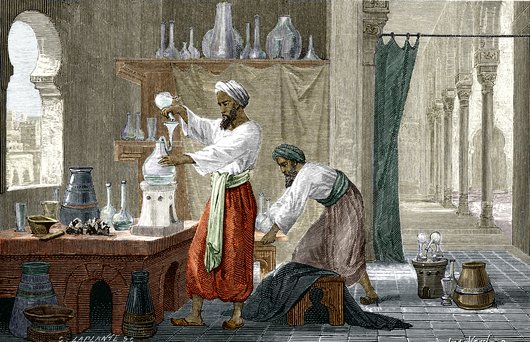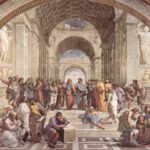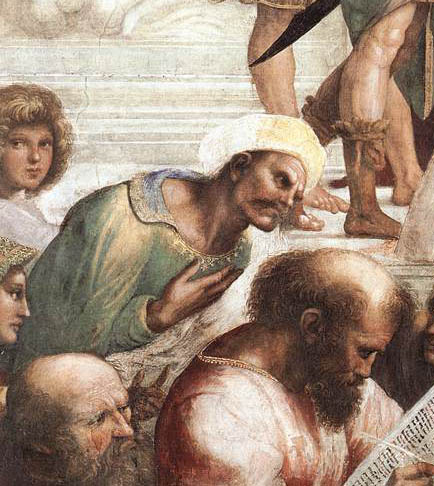
The designation of Arab scholars or scholars of Islam - and they are neither one nor the other - is applied to the “scientists of the House of Islam”, that is, to those who were born or became famous and prominent in Islamic cities, during the era of the Abbasid caliphate. Yet they were not necessarily Muslims, in heart and soul, for one reason or another.
WE FIND that the majority of conservative clerics, throughout the history of the Islamic call, have never once looked with reverence or respect upon the majority of them, if not all of them, and they do not consider them scholars at all, but rather mere atheists, heretics, open infidels, without the slightest regard for the unprecedented sciences that these scholars gifted humanity.
This hatred and rejection can be clearly seen in the almost non-existence of their names on any of places of worship, or colleges or institutions of science or any laboratories. This has created a kind of paradox or a sad irony. On the one hand some would dearly like to express their pride in them as fellow Muslims, and pioneers in many fields, while on the other hand some prefer to see them otherwise and not give them any credit, consign them to oblivion and refuse to consider them Muslims in the first place.
Nothing indicates this better than the tragic way in which the lives of all these distinguished figures ended. Everyone who employed his rational intellect, in the past or even now, has been accused of blasphemy, disbelief or atheism by the majority of the clerics, who in fear of losing their status and authority (derived entirely from parroting the words of others) put them to death unthinkingly in the grisliest of ways
“Some are proud of the scholars of the Golden Age of Islam, while others disavow them, and do not give them any consideration. We have been living for a thousand years in a constant contradiction concerning these”!
In an article entitled “The Cloak of Religion and Hypocrisy Throughout History” Professor Hilal Aoun noted that one of the indicators and scenes from our history that demonstrate the clergy’s struggle against reason is the position they took on six personalities held to be the most scientifically and intellectually superior in the history of Islam. Ibn Hayyan, for instance, is recognized as the first man in history to employ chemistry practically, and called “the father of chemistry”. Yet he did not escape accusations of heresy and blasphemy; Ibn Taymiyyah wrote him off as
“ignorant, an obscurity, and unmentioned among the people of knowledge and faith. And if we acknowledge his existence at all, it is as merely one of the great sorcerers in this land. He practises chemistry, sorcery, magic and the making of talismans. we prove a magician of the great magicians in this religion, who worked with alchemy, alchemy, magic and talismans.”
No scientist escaped the clutches of his takfiri mindset. As for Al-Farabi, dubbed ‘the Second Teacher’ (after the ‘first teacher’ Aristotle), the clerics were as one concerning his disbelief and atheism.
Then came the turn of their master Ibn Sina, whom Ibn al-Qayyim al-Jawziyya described as “the chief of the atheists of this people,” and “the imam of the atheists who disbelieve in God, His angels, His books, His messengers, and the Last Day.” Al-Ghazali also proceeded to excommunicate him, while Al-Kashmiri described him as an “atheist heretic.” As for Al-Kindi, dubbed “the founder of Arab-Islamic philosophy,” he was criticized for seeing reason as the essence of drawing closer to God. Many considered him “a misguided astrologer whose faith was suspect”.Ibn Rushd was written off by Al-Hafiz Al-Dhahabi and Ibn Taymiyyah as “a deviant and atheist philosopher” in that he attempted to reconcile Sharia law with the philosophy of Aristotle, and by agreeing with him and glorifying Aristotle and his school was “even a greater disbeliever than Ibn Sina” for having championed the atheist philosophers in his work The Incoherence of the Incoherence. He was considered an esoteric philosopher whose atheism was well known.
As for Ibn al-Haytham, he was not spared the insults and was seen as an atheist beyond the pale of Islam. from insulting, and was considered an atheist outside of Islam, like other philosophers of his type. Ibn Taymiyyah declared him a disbeliever and numbered him among those who had left Islam, one of Ibn Sina’s peers in science, foolishness, atheism and misguidance!

Suggested Reading
The list would get much longer if we opened the file of the Abbasid Bayt al-Hikma (‘House of Wisdom’), and the many translators, copyists and scribes who laboured there bringing to the Islamic world the literatures and the sciences of humanity and who remain forgotten and passed over in silence.Just to take one example among many, we could read the works of Hunayn Ibn Ishaq, a Nestorian of Jewish origin who was one of the most important scholars and translators of his time. He was fluent in Arabic, Syriac, Persian and Greek. From him we learned the works of Galen, Hippocrates and Aristotle, and he was the first to author a study of the anatomy of the eye. Jirjis ibn Bakhtishu’ (a Syriac scholar who lived in Al-Ahwaz) also translated many Greek medical books. Yuhanna ibn Masawayh (an Ahwazi Christian) collected books of Greek wisdom and valuable volumes from Cyprus.
Among those who were also consigned to oblivion were Jibra’il al-Kahhal, al-Harik al-Manajjim, Salmawayh ibn Banan, Musa ibn Isra’il, Micha’il ibn Masawayh, Yuhanna ibn al-Batriq and dozens of others like them – scientists in medicine, astronomy, geographers and philosophers – all of whose merits we repudiate and denigrate in our reports and studies, and refuse to teach about in our schools as the the important, eminent scholars they were.

